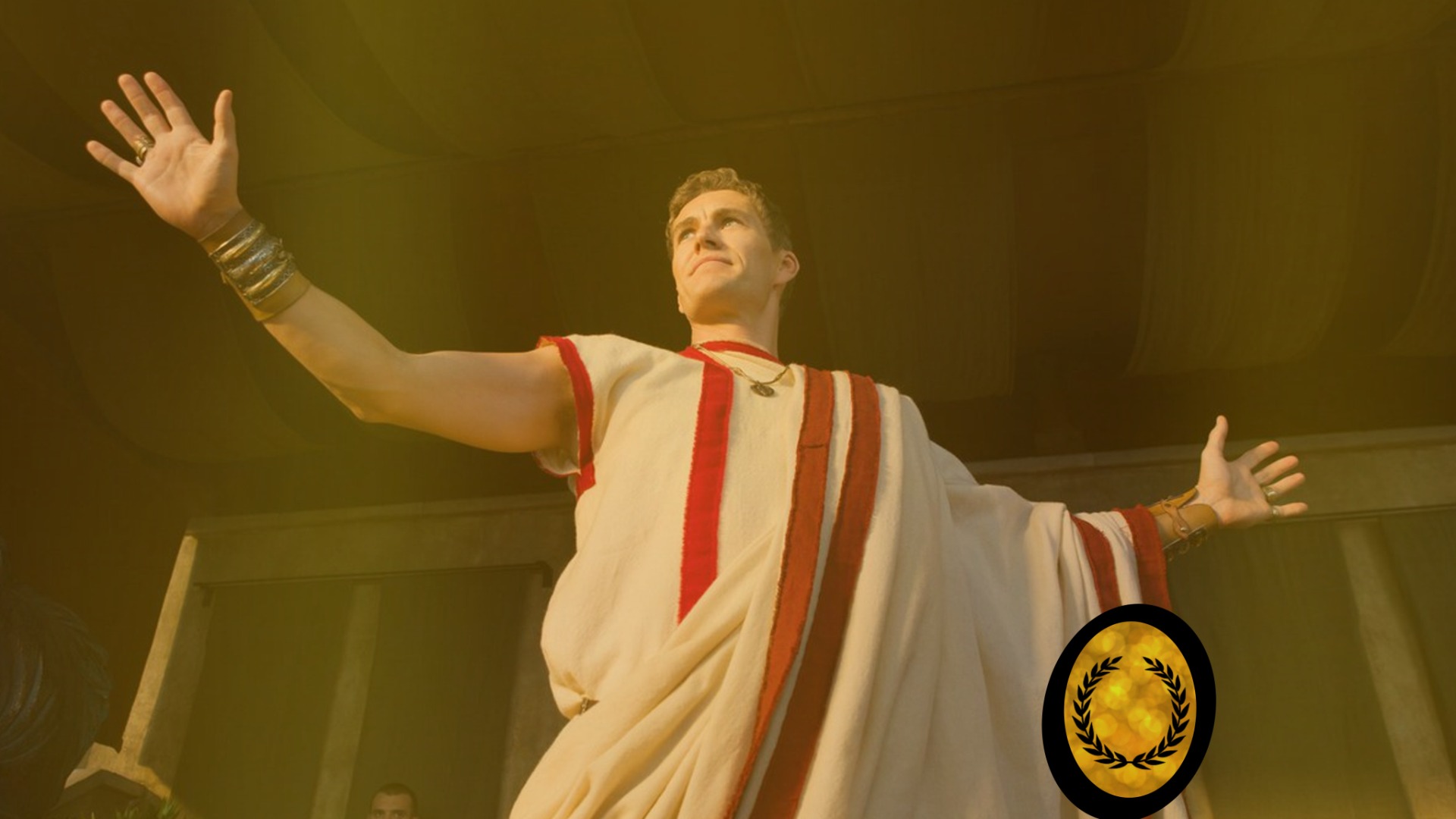After convincing Glaber that a different type of fighter than Roman soldiers was necessary to defeat the rebels, Ashur begins to recruit the most bestial of men in Capua. His quest leads him to recruit mercenaries and criminals, and eventually he arrives at Capua prison to recruit the Egyptian, having heard of his combat prowess.
Due to the Egyptian's extreme violence, he was forcibly separated from the other prisoners, guards and placed in a grave deep within the prison walls. Ashur threatens the guards to free him, and throws a rope at the Egyptian so he can get out of the pit. As a test of the fighting ability of his new group, Glaber leads them to slaughter the House of Seppius, where the Egyptian kills several slaves and guards in the house with his twin daggers.
After the Seppius massacre, the Egyptian and his fellow mercenaries are ordered by Glaber to crucify Illithyia's personal slave, partly as a warning against Spartacus, and also as a measure of revenge against Ilithyia. The Egyptian hits the slave in the face, before Ashur's group nails her to a wooden pole.
After Gannicus kidnaps Ilithyia, Glaber takes the mercenaries to a brothel that Gannicus frequented to interrogate residents and clients. There the Egyptian shows immense strength by breaking the neck of a drunk who dared to comment on Glaber's appearance in the brothel, twisting his neck back easily. The locals are visibly horrified by this feat.
Despite the intrusion and violent questioning, it was discovered that the only person there who knew Gannicus, Marcia, had been crucified previously, leaving Glaber with no one to question. Despite this, Glaber orders the Egyptian and the other mercenaries to interrogate the brothel-goers, resulting in all residents being relentlessly tortured and massacred. The mercenaries continue from brothel to brothel, seeking information and violently killing everyone who has nothing to give, only to return empty-handed.











